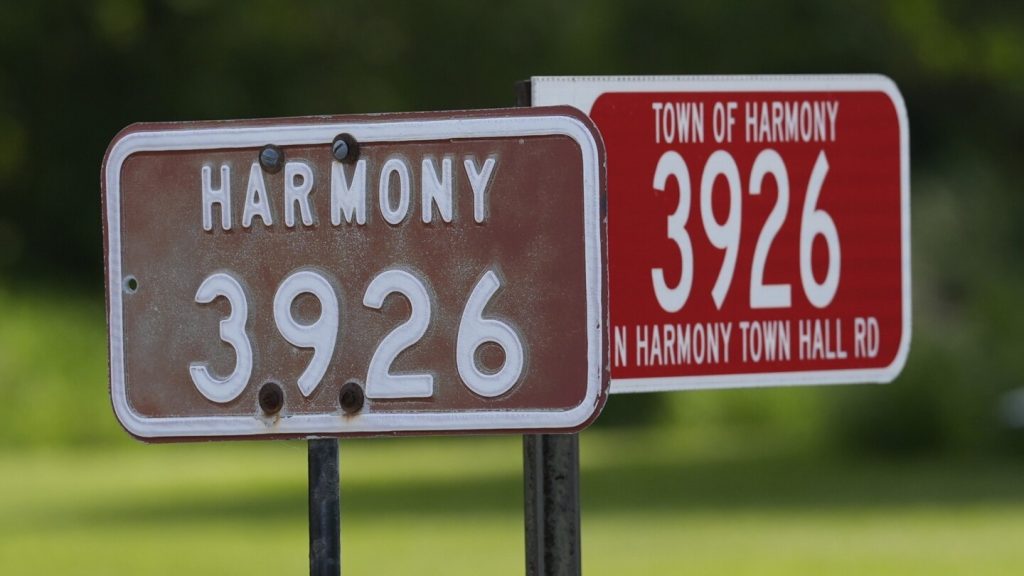Residents of Harmony Township in Wisconsin, a small town with a population of 2,500, have found a way to live in relative harmony despite political divisiveness that characterizes the country. The town is known for its ability to predict winners in presidential and gubernatorial races, having sided with the winner in all 13 races since 2000. With a population that is predominantly white and a high percentage of multiracial individuals, Harmony stands out for its political stability in a swing state like Wisconsin, where the majority of races are decided by narrow margins.
The town of Harmony has managed to pick winners in recent elections with uncanny accuracy, despite the political volatility of Wisconsin as a whole. Residents are split between supporting Republican and Democratic candidates, highlighting the town’s ability to coexist peacefully despite differing political views. Notably, Harmony residents voted for Donald Trump in 2016 and then switched to Joe Biden in 2020, reflecting the diversity of opinions within the community. Although some residents, like Loren Hanson, are undecided about their vote in the upcoming election due to concerns about the current candidates’ personal troubles.
Despite their political differences, residents of Harmony emphasize mutual respect and cooperation, regardless of their political affiliations. The town’s residents are known to engage in civil conversations and prioritize local issues over national politics. This approach has helped foster a sense of understanding and acceptance among residents, leading to a harmonious coexistence despite disagreements on national issues. The lack of outward displays of political affiliation, such as yard signs, also contributes to maintaining a sense of unity within the community.
Harmony’s history as a town in southeastern Wisconsin dates back to its establishment in 1848, aligning with the state’s founding year. Over the years, the town has weathered economic challenges, such as the closure of the General Motors plant in nearby Janesville during the Great Recession. Despite these challenges, Harmony has managed to maintain a strong sense of community and resilience, reflected in the way residents navigate political differences with civility and respect. As a microcosm of broader political trends in the state, Harmony offers lessons in bridging divides and finding common ground in a polarized society.
As the 2024 election approaches, Harmony residents are once again faced with a choice between two candidates with whom they may have reservations. While some residents remain loyal to their preferred candidates, others are grappling with uncertainties and concerns about the future of the country. Regardless of their individual political views, the residents of Harmony are united in their commitment to peaceful coexistence and mutual understanding. By focusing on local issues and maintaining open dialogue, they have managed to transcend political divisions and build a strong sense of community that serves as a model for others to follow.
In a time of deep political division and uncertainty, communities like Harmony offer a glimpse of hope and resilience. By prioritizing respect, cooperation, and understanding, residents of Harmony have found a way to navigate political differences without letting them overshadow their shared values and commitment to unity. As the country grapples with complex challenges and uncertain futures, the example set by Harmony serves as a reminder of the power of dialogue, empathy, and cooperation in building a more harmonious society. Through their actions and attitudes, residents of Harmony demonstrate that political disagreements need not lead to division, and that genuine connection and mutual respect can bridge even the widest of gaps.


